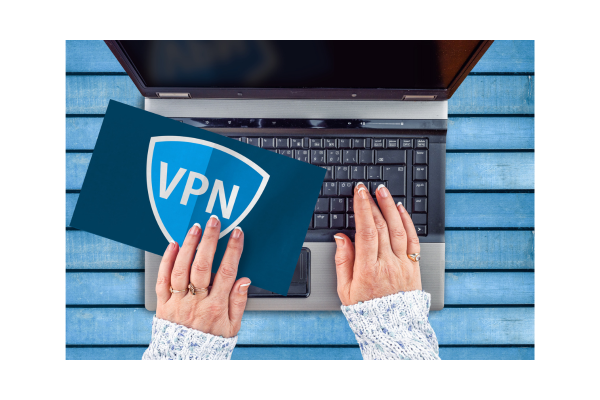
With increased online activity comes greater exposure to cyber threats. Protecting your business’s sensitive information is essential—not just for compliance, but for building trust with clients and ensuring smooth operations. A Virtual Private Network (VPN) is a tool that can help you secure your data, support your team, and maintain your reputation. This post will explain why VPNs are important, how to choose the right one, and what pitfalls to avoid.
What Is a VPN?
A Virtual Private Network (VPN) creates a secure, encrypted tunnel between your device and the internet. When you use a VPN, your online traffic is routed through a remote server, which hides your real IP address and protects your data from hackers, snoopers, and even your internet service provider. This is especially important for businesses that handle sensitive customer information, process payments, or have employees working remotely.
Why VPNs Are Especially Relevant for Women-Owned Small Businesses
Women entrepreneurs often juggle the demands of security, flexibility, and affordability—especially when managing remote or distributed teams. VPNs are a foundational tool for addressing these challenges, offering strong protection and enabling seamless operations in today’s digital-first environment.
Security and Privacy
VPNs encrypt data as it travels between devices and the internet, shielding sensitive business and customer information from cybercriminals. This is especially important when using public Wi-Fi at cafés, airports, or hotels—common targets for hackers. By securing your online activity, a VPN helps prevent unauthorized access and data breaches that could damage your reputation and bottom line.
Compliance
Many industries require businesses to protect customer data under regulations like GDPR or HIPAA. VPNs support these requirements by encrypting data in transit, which is a key component of many compliance frameworks. While not a complete solution, a VPN is a smart first step and an important part of demonstrating due diligence.
Remote Work and Hybrid Teams
As more women business owners and their teams work from home or on the go, secure remote access is essential. VPNs enable employees to safely connect to business systems, shared files, and internal tools from anywhere—keeping productivity high without compromising security.
Building Trust
Showing a commitment to cybersecurity builds confidence with clients and partners. When people know their information is being handled securely, they’re more likely to trust and continue doing business with you.
Overcoming Geo-Restrictions
VPNs can help access region-specific tools, cloud services, or content—particularly useful for businesses working with international clients or traveling. By routing your connection through servers in other countries, VPNs bypass geo-restrictions and ensure you stay connected to the tools you need.
Common Misconceptions and Pitfalls About VPNs
Understanding what a VPN can—and can’t—do is essential to using it effectively. Here are some common myths and potential pitfalls:
-
VPNs Are Not a Silver Bullet
VPNs are just one layer of your cybersecurity strategy. They encrypt data in transit but don’t protect against phishing, malware, or weak passwords. -
Performance Impact
VPNs can slow your internet speed, especially if connected to a distant server. Premium providers typically offer optimized speeds to minimize this. -
Free VPNs Are Risky
Free services often have weaker security, limited features, or questionable privacy practices. Some may log or sell your data. Some free VPNs have been found to contain malware, spyware, or adware that can infect your device and steal sensitive information. Some free VPNs have been used to turn users’ devices into proxy servers for illegal activities like cyberattacks or money laundering, without the users’ knowledge. "Free" may cost you. Good thing good VPNs can be had for cheap. -
Legal and Regional Restrictions
VPNs are restricted or banned in some countries. Always check local laws before using a VPN abroad. -
Device-Specific Protection
A VPN installed on one device only protects that device. You’ll need to install it on all company devices or use a VPN router to ensure full protection. -
VPNs Don’t Stop Malware or Viruses
VPNs encrypt traffic but don’t block malware. Antivirus software and safe browsing habits are still necessary.
When Should You Use a VPN?
VPNs are especially helpful in the following scenarios:
-
Remote Work: Employees accessing systems from home, cafés, or while traveling
-
Handling Sensitive Data: Customer info, financial records, or proprietary assets
-
Public Wi-Fi Usage: Working from airports, hotels, or other unsecured networks
-
Compliance Requirements: For businesses subject to HIPAA, GDPR, or similar laws
-
Hybrid Teams: Securing access for both remote and in-office staff
By integrating a VPN into your operations, you protect sensitive information, support your team's flexibility, and demonstrate your commitment to cybersecurity.
When a VPN Might Not Be Necessary for Your Small Business
While VPNs are valuable, they’re not always required. Here’s how to assess whether your business really needs one right now:
Situational Reasons to Temporarily Avoid a VPN
-
Accessing Local Devices or Networks: VPNs may block access to local printers or file servers
-
Banking and Financial Sites: Banks may flag logins from VPNs as suspicious
-
Performance-Heavy Tasks: Large uploads, streaming, or real-time webinars may work better without a VPN
Strategic Reasons to Delay Using a VPN
-
Your team works entirely on-site
-
You don’t handle sensitive data or you’re not subject to data compliance laws
-
You lack IT resources for support
-
You’re early-stage and managing budget constraints
If that’s your situation, focus on other security basics first—like strong passwords, MFA, and regular software updates.
Top 10 VPNs for Women-Owned Small Businesses
Here are ten VPNs with strong reputations and features tailored for small business needs:
1. NordLayer (Business version of NordVPN)
Best for: Managed network access and centralized control
Features: Admin dashboard, 30+ server locations, cloud integration
Why Choose: Scalable and fast—great for remote or multi-location teams
2. Surfshark
Best for: Budget-conscious teams with many devices
Features: 3,200+ servers, AES-256 encryption, built-in antivirus
Why Choose: Affordable and reliable for startups and small teams
3. Proton VPN
Best for: Privacy-focused businesses
Features: Dedicated IPs, Secure Core architecture, 24/7 support
Why Choose: Strong reputation for privacy and security
4. ExpressVPN
Best for: Speed and international reach
Features: 2,000+ servers, audited no-logs policy, 24/7 support
Why Choose: Ideal for global connectivity
5. Private Internet Access (PIA)
Best for: Affordability and open-source customization
Features: 30,000+ servers, dedicated IPs, open-source apps
Why Choose: Flexible and private for small teams
6. PureDome
Best for: Team access and business growth
Features: Team management tools, site-to-site VPN, dedicated IPs
Why Choose: Simple and scalable for growing businesses
7. Windscribe
Best for: Free/flexible use with strong privacy
Features: Free plan, unlimited devices, team billing
Why Choose: Great value for budget-conscious teams
8. KeepSolid VPN Unlimited
Best for: Lifetime access or long-term use
Features: One-time purchase options, easy setup
Why Choose: Low-maintenance solution for solo or lean teams
9. CyberGhost
Best for: Ease of use and large server network
Features: Optimized for streaming, user-friendly interface
Why Choose: Great for teams without IT staff
10. Perimeter 81
Best for: Simple cloud-based administration
Features: SSO, granular access, cloud app integration
Why Choose: Excellent for cloud-first businesses
Comparison of VPNs
VPNs offer a practical way to improve security, privacy, and professionalism in your business. For women-owned small businesses, they’re especially helpful in building trust and supporting remote work. By choosing the right VPN—based on your team size, budget, and risk profile—you can strengthen your defenses without overwhelming your operations.


